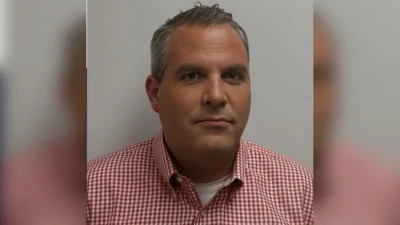Since 2004, Luther has reduced its emissions 63.5% despite having increased the amount of conditioned space 7.7%. The vast majority of Luther's reductions to date are associated with purchased electricity along with major investments in energy efficiency and solar power that have reduced grid purchases nearly 37.8%. Luther College's current goal is to be carbon neutral by 2030.
Yet the question still remains: How will we achieve this goal? And are we on track to successfully achieve carbon neutrality by 2030? Most options moving forward focus on sunsetting the existing natural gas-powered steam system that serves most of the campus, which would drastically reduce the burning of fossil fuels. In its place would be a campus-wide Low Temperature Hot Water (LTHW) system with a ground source heat pump energy (geothermal) plant and chilled water (CHW) system. Geothermal energy is what currently heats and cools Baker Village, and the Center for the Arts.
When we think about next steps for further reductions in our carbon footprint and achieving neutrality, it’s really more questions than answers. What strategies are best? How will we pay for infrastructure improvements? Should we utilize carbon offsets? What can we do as students, employees and stakeholders to help this effort? None of the answers are easy but here are some reflections on each question:
Strategies? The biggest strategy moving forward is to make changes to how we heat our campus. Heat is important and for decades we have relied upon fossil fuels (mostly natural gas) to heat water to make steam to heat campus buildings. Most options moving forward focus on sunsetting the existing natural gas-powered steam system that serves most of the campus, which would drastically reduce the burning of fossil fuels. In its place would be a campus-wide Low Temperature Hot Water (LTHW) system with a ground source heat pump energy (geothermal) plant and chilled water (CHW) system. Geothermal energy is what currently heats and cools Baker Village, and the Center for the Arts. Luther has a “Utility Master Plan” that outlines a path to this campus heating transformation. How soon we might begin to implement this plan is one of the big questions for Luther’s leadership.
Financing? While Luther’s past efforts to cut emissions have also cut costs in the long-run, there is still the issue of how to pay for the upfront costs. This is also the question looking forward. At a time when the college faces budget and enrollment challenges, how do you finance infrastructure improvements? Luther’s previous investments in emissions reductions have utilized a creative mix of financing and the future will need to be the same. Grants, tax credits, donations, and third party investors are some of the most important sources of funding.
Offsets? While several schools have claimed carbon neutrality, it’s almost always through the purchase of what are called carbon offsets. These are pieces of paper that give the buyer the right to claim the environmental attributes of existing projects like wind and solar farms. While some offsets are crucial investments that ensure “additionality” (they really do add to the amount of green energy produced), others are closer to “indulgences,” allowing others to claim good deeds without changing the overall system. Luther uses some offsets but only from local projects where we know there is additionality and only to offset a small portion of our emissions. That approach is likely to continue, though offsets can be a key driver for change.
Doing our part? “What can I do?” is a common question and a good one. Each of us needs to be mindful of our own energy usage and emissions. Don’t leave lights on when you leave a room, unplug unused devices and watch your heating and cooling to minimize waste. We should also be informed and politically active. While individual actions do matter, ultimately we need systemic changes, both at Luther and in the society at large. Tell college leaders that you support aggressive action to reduce emissions and educate your friends. Simply paying attention and speaking out are powerful actions that can change the world.
Original source can be found here.




 Alerts Sign-up
Alerts Sign-up